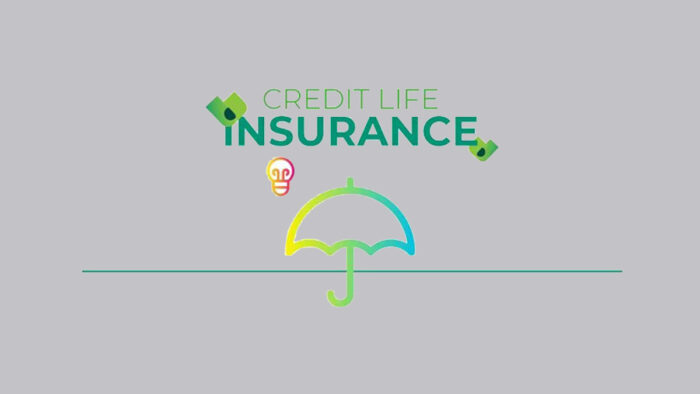Credit life insurance is a type of policy designed to pay off a loan if you pass away. If you apply for a loan, like for a home or vehicle, the lending company might offer this insurance to help you cover the loan amount.

If something happens to you, the policy ensures the loan is paid off. This way, your family doesn’t have to worry about making the payments.
Unlike regular life insurance, it only covers the loan amount and ends once the loan is fully repaid. It doesn’t provide any payout for other expenses.
Some confusion comes from the term “credit life,” which can also be used as a marketing slogan for regular life insurance. But it’s important to know that true credit life coverage only lasts for the loan period and only pays off that debt, nothing more.
What Does Credit Life Insurance Cover?
Just as I have mentioned above, credit life coverage pays off any remaining debt if you pass away before the loan is fully paid. For example, if you have credit life insurance on your mortgage and pass away, the policy will cover the remaining balance, relieving your family from that financial burden. You can use credit life coverage for things like:
- Mortgages
- Car loans
- Student loans
- Credit cards
- Retail purchases bought with financing
How Much Does Credit Life Insurance Cost?
The cost of credit life insurance varies based on the loan amount. However, it’s usually more expensive than traditional life insurance. Several factors influence the price, including the type of loan and the policy.
This policy tends to cost more because it’s seen as riskier. This is due to its “guaranteed issue” nature, meaning anyone can get it just by having a loan. Unlike regular life insurance, you do not need a medical exam or health information. The policy covers the loan balance, not your life.
Advantages
Credit life coverage offers some key benefits. It ensures that if you pass away, a specific debt, like a credit card or loan, gets paid off. It’s a good option for those with smaller loans who don’t need a long-term life policy.
The average policy covers about $5,600, making it more affordable for small debts than a term life policy. It can also make things easier for your estate, as it pays off the debt directly, without using your other assets.
Another advantage is that it can protect co-signers or joint account holders who would otherwise be responsible for repaying the debt.
Disadvantages
Credit life coverage has its downsides and might not be the best fit for everyone. If you have multiple debts or broader financial goals, a term life insurance policy could give you much more coverage at a better cost.
With term life insurance, you can cover more than just debt—like a child’s education or your family’s financial needs until retirement. Credit life insurance also limits flexibility. The payout goes directly to the lender. This means your family won’t get the money to use for other urgent expenses or needs they might face.
Things to Consider Before Buying Credit Life Insurance
Before opting for this type of policy, it’s important to weigh a few factors, as it can be more expensive than regular life insurance and mainly benefits the lender.
Consider buying credit life insurance if:
- You want to protect your loan’s co-signer: It ensures the co-signer won’t be stuck with the remaining loan balance.
- You can’t get traditional life insurance due to health issues: Since no medical exam is required, it might be a good option if you’re in poor health.
- You can’t qualify for enough life insurance to cover your debts: Credit life insurance will help cover the specific debt, so your loved ones won’t have to shoulder it.
However, it might be better to look at other options. This is particularly true if you qualify for traditional life insurance that covers your debts. It also applies if your family could handle paying off the loan without much financial strain.
Alternatives to Credit Life Insurance
Instead of credit life coverage, you have a few other ways to cover your debts if you pass away:
- Use your current life insurance: You could increase its coverage to match your debt if you already have life insurance. You may need to take another health exam to qualify, but you can lower the coverage once your loan is paid off. Alternatively, you could earmark part of your existing policy to cover the debt.
- Term life insurance: If you need coverage for a specific period, like the length of a loan, term life insurance could be a more affordable option. You can choose coverage for 5, 10, 20, or even 30 years, and you can name any beneficiary, giving your family flexibility.
FAQ
What is a credit life insurance policy good for?
A credit life insurance policy can help clear specific debts when you pass away. However, term life insurance might be a better option.
For instance, a 30-year term life policy could cover your mortgage if you pass away before it’s fully paid. Plus, any leftover money could support your family with living expenses, funeral costs, and more.
To choose the right policy, consider your debts, assets, coverage needs, and budget to find the best fit for your family’s situation.
Does credit life insurance require a medical exam?
It doesn’t need a medical exam. It’s focused on paying off your loan. It does not provide a payout to your family after you pass away.
Do you owe taxes when your credit life insurance pays off your debt?
Most of the time, you are not required to pay taxes when credit life insurance pays off your loan.



